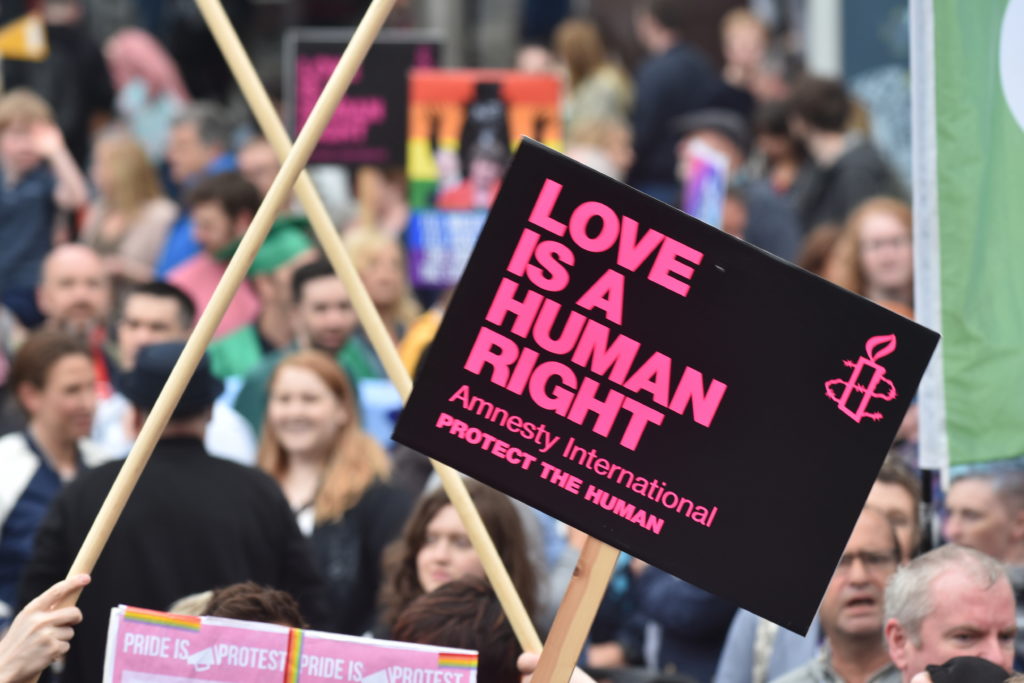A court in the UK has blocked marriage equality in both the Cayman Islands and Bermuda in a huge blow to LGBT+ folk in the British overseas territories.
In March 2019, same-sex marriage was legalised with immediate effect in the Cayman Islands following a lengthy legal battle by lesbian couple Chantelle Day and Vickie Bodden Bush.
But just eight months later, the Cayman Islands government won an appeal to overturn the legalisation, re-criminalising same-sex marriage, although the Court of Appeal mandated unions which have a “legal status equivalent to marriage” for same-sex couples.
The couple’s legal team decided to make a final appeal to the Privy Council in the UK, the highest appeals court for several Caribbean British overseas territories.
The Privy Council also considered the case for marriage equality in Bermuda at the same time.
The LGBT+ community in Bermuda has experienced a similar, if even more convoluted, battle for equality.
Although same-sex marriage was legalised in Bermuda in May 2017, it was later re-criminalised and then legalised again in 2018.
The Bermudian government decided to take its case to the Privy Council, in an effort to have marriage equality made illegal for the third time.
The UK’s Privy Council sided with the anti-LGBT+ governments of Bermuda and the Cayman Islands
The Privy Council ruled that based on the constitution of the Cayman Islands, which described marriage as between a man and a woman, same-sex marriage should remain illegal.
In a unanimous decision, judges said: “This is a matter of choice for the legislative assembly rather than a right laid down in the constitution.”
Leonardo Raznovich told the Associated Press that ruling was “an affront to human dignity”, while Billie Bryan, founder of LGBT+ rights group Colours Cayman, added: “The Privy Council has done nothing more, by its decision, than reassert the oppressive political environment of yesteryear.”
In Bermuda’s case, judges ruled five to one to side with the government and re-criminalise same-sex marriage yet again.
Although judges acknowledged that “the restriction of marriage to opposite-sex couples may create among gay people a sense of exclusion and stigma”, they nevertheless ruled: “International instruments and other countries’ constitutions cannot be used to read into [Bermuda’s constitution] a right to the legal recognition of same-sex marriage.”
Today the Privy Council has *reduced* the rights of LGBT people in the British Overseas Territories. Same-sex marriage will be abolished in Bermuda after 4 years (Lord Sales diss). They also unanimously upheld the Cayman Islands’ ban on same-sex marriage.
— Nicola Barker (@NicolaJBarker) March 14, 2022
Last year, students were “shocked” to discover that the new president of the University of Oxford’s Magdalen College, barrister Dinah Rose QC, was representing the Cayman Islands government in its effort to block marriage equality.
Following Monday’s Privy Council ruling, the University of Oxford’s LGBTQ+ Society and the LGBT+ officer of its African Caribbean Society said in a joint statement that they were “deeply saddened to learn the Privy Council has unanimously ruled in favour of the Cayman Island government, and against same-sex couples’ right to marry under the Caymanian constitution”.
They continued: “We send our heartfelt sympathies to Chantelle and Vickie, the couple whose enormous efforts over multiple years had sought to vindicate LGBTQ+ rights in the Cayman Islands.
“This outcome denies LGBTQ+ Caymanians, who are also British citizens, full equality, their human dignity, and continues to uphold the segregation of LGBTQ+ people in the region.
Our and @OxfordACS‘s statement regarding the PC’s judgement on the Cayman Islands same-sex marriage case and the President of Magdalen’s involvement. We stand in solidarity and love with Chantelle & Vickie today. pic.twitter.com/706UzKrVqw
— Oxford LGBTQ+ Soc (@OULGBTQ) March 14, 2022
“It also regrettably reconfirms the lack of LGBTQ+ rights in British Overseas Territories and the disinterest of the UK government in promoting equality for all British citizens… The Privy Council is showing its commitment to the continuation of British colonial ideology over the rights of its citizens.
“It is now clear that the head of a prestigious Oxford college, Ms Dinah Rose, QC, was successful in upholding the homophobic segregation the Cayman Islands government sought to retain, a judgment which could have far reaching consequences for LGBTQ+ rights progression in the region and in the wider Commonwealth.
“Just a month ago, Ms Rose and Magdalen College were celebrating the UK’s annual LGBTQ History Month. Today, she, the most visible public representation of Magdalen College, has become part of LGBTQ+ history by entrenching segregation impacting Caribbean LGBTQ+ people.”
